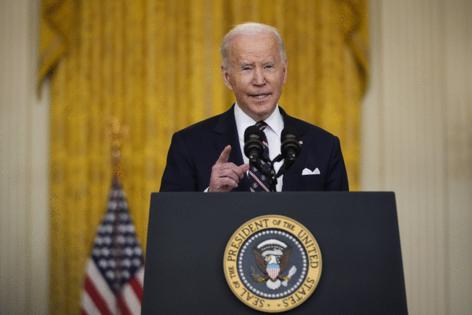Sanctions, on rise, are as deadly as armed conflict, study says
Published in News & Features
Sanctions can cause as many fatalities as armed conflict, with unilateral penalties being associated with more than half a million deaths per year, according to a new analysis.
Unilateral and economic sanctions imposed by the U.S. and the European Union lead to a substantial increase in mortality that disproportionately hurts children younger than five years old, the study published in the Lancet Global Health journal found. Sanctions can hobble public health provision and keep humanitarian organizations from operating effectively, weighing on the death toll.
The researchers found that unilateral sanctions cause more than 560,000 deaths each year worldwide — falling within a range that the researchers calculated for annual deaths from armed conflict using past literature and their own calculations.
“Woodrow Wilson referred to sanctions as ‘something more tremendous than war.’ Our evidence suggests that he was right,” authors Francisco Rodríguez, Silvio Rendón and Mark Weisbrot wrote. “It is hard to think of other policy interventions with such adverse effects on human life that continue to be pervasively used.”
The researchers, whose work was funded by the Center for Economic and Policy Research, a progressive think tank, looked at mortality rates by age group in sanctions episodes for 152 countries between 1971 and 2021.
They used four unique econometric tools to isolate the causal relationship between categories of sanctions and higher mortality rates. Their findings were consistent across all four methods: Global, economic and unilateral sanctions are all associated with higher death tolls. United Nations sanctions are not, to any statistically significant level.
The term “global sanctions” in the study refers to all penalties, whereas “economic sanctions” are trade and financial deterrents and “unilateral sanctions” are imposed by either the U.S. or the EU.
U.N. sanctions potentially have less impact given they’re framed as efforts to minimize impact on civilian populations, the authors point out, while U.S. sanctions often aim for regime change or shifts in political behavior, which deteriorates living conditions in target countries.
“Many times, a rogue regime will blame sanctions for all the problems of its country,” Jeremy Paner, a sanctions lawyer at Hughes Hubbard, told Bloomberg before seeing the study. “It’s easy to blame the U.S. or Brussels.”
Paner, who previously served as lead sanctions investigator at the Treasury Department’s Office of Foreign Assets Control, was skeptical of the study’s conclusion, emphasizing that OFAC works to ensure that humanitarian groups can work in sanctioned countries effectively.
“The point of sanctions is to further foreign policy and American values, including humanitarian work,” he said.
Rodríguez, the study’s lead author and an expert on sanctions and the crisis in Venezuela, countered that even if humanitarian aid is allowed into sanctioned countries, there are formidable obstacles to delivery. Banks and nonprofits often avoid interactions with the sanctioned nation regardless of the exceptions for aid.
“Saying, ‘I’m going to block your oil exports, but I’m going to allow you to continue importing humanitarian goods,’ is almost like saying to somebody who has just lost their job, ‘Don’t worry, you can still go into the store and buy whatever you want,’” Rodríguez said in an interview.
For decades, academics have debated how sanctions affect mortality, but have struggled to prove such a relationship. Joy Gordon, who focuses on sanctions at Loyola University in Chicago, said the Lancet study offers a “compelling argument, supported by rigorous methodology, that sanctions directly impact mortality” across age groups.
The researchers urged policymakers to exercise restraint with sanctions, especially as the tool’s use has ballooned. Some 25% of countries were sanctioned by the U.S., EU or U.N. between 2010 and 2022 — up from 8% of countries in the 1960s, according to the study, which cited Global Sanctions Database figures.
_____
©2025 Bloomberg L.P. Visit bloomberg.com. Distributed by Tribune Content Agency, LLC.







Comments